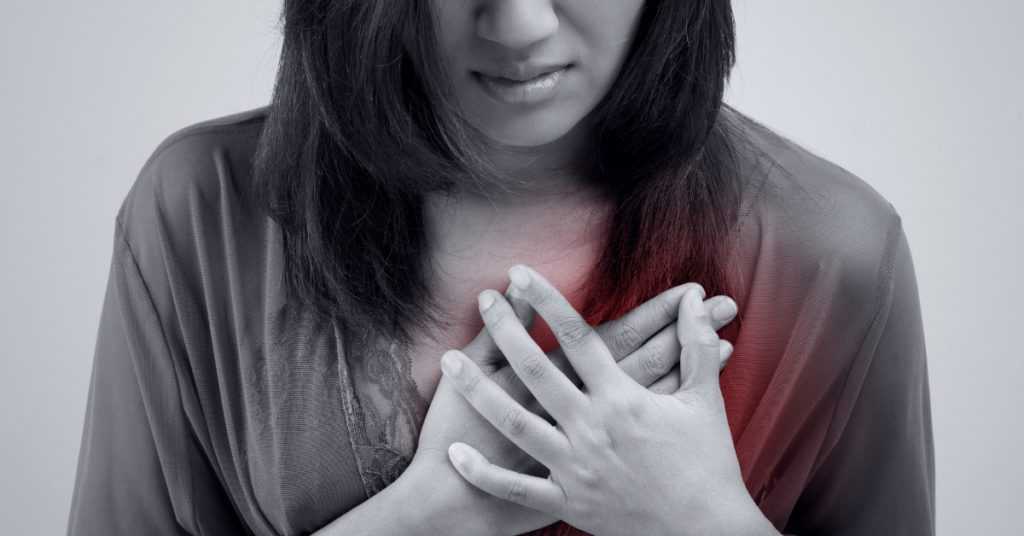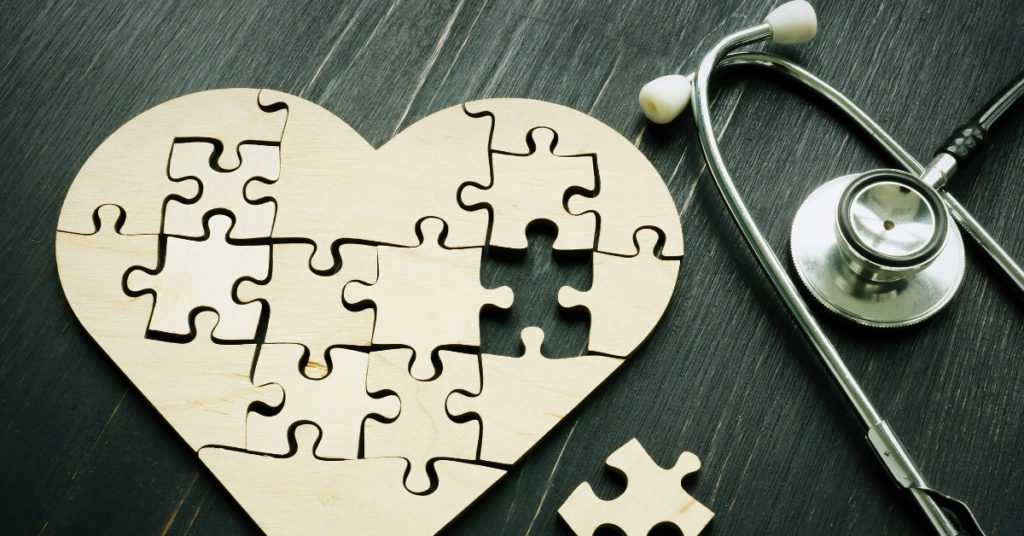Heart attack, a life-threatening condition caused by the blockage in the heart’s blood supply. Knowing the female-specific sudden heart attack symptoms can help females seek medical help sooner, potentially saving their lives.
The likelihood of women surviving their first heart attack is lower than that of men. It may be because the symptoms are different between the sexes. Females have a greater likelihood of suffering a “silent” heart attack or experiencing unusual symptoms.
Furthermore, because some diseases, such as polycystic ovary syndrome, are not present in male biology, female biology creates unique risk factors for heart attacks.
Sudden Heart Attack Symptoms in Women
Many people believe that heart attacks strike suddenly. However, studies show that women have symptoms for several weeks before having a heart attack.
According to a study of 515 women who had had a heart attack, 80 percent of them had at least one sign at least four weeks before their heart attack.
Symptoms can be persistent or intermittent, and they can also interfere with sleep. It is critical for a woman experiencing these symptoms to seek medical attention right away, as heart attacks can be fatal, regardless of how mild or severe the symptoms are.


Possible sudden heart attack symptoms are:
Chest Pain
Chest pain is among the most common heart attack symptoms, but some females might experience it differently from males. It might feel like squeezing or fullness and can be anywhere in the chest, not only on the left side. It is usually uncomfortable in a heart attack.
Weakness
Feeling shaky or weak is also a common acute sign of heart attack in females. This shaking or weakness may be accompanied by:
- dizziness
- anxiety
- feeling lightheaded
- fainting
Extreme or Unusual Fatigue
Some females who have heart attacks feel as if they are exhausted, even when they are sitting still for some time or have not moved much. Patients frequently complain of chest fatigue. They’re unable to perform simple tasks such as walking to the bathroom.
Shortness of Breath
Heavy breathing or shortness of breath without exertion, particularly when accompanied by chest pain or fatigue, could indicate a heart problem. When lying down, some women may experience shortness of breath, which subsides when they sit up.
Upper Body Pain
Pain in the arm, neck, back, or jaw is another sign of heart attack. Females are more likely to have this type of pain than men. It could be perplexing for women who expect their pain to be in their chest and left arm rather than their back or jaw. The pain may come on gradually or suddenly, and it may wax and wane before intensifying. It has the potential to wake you up if you are sleeping. Any “abnormal or unexplained” symptoms in any part of your body above the waist should be reported to your doctor or other health care provider.
Sweating
Women who are having a heart attack frequently break out in a nervous, cold sweat. It will feel more like stress sweating than sweat from exercise or time spent outside in the sun. If you don’t usually sweat like that and there’s no other reason for it, such as heat or hot flashes, “get it checked out.”
Stomach Problems
Sometimes people mistake their stomach pain which signals a heart attack with the flu, heartburn, or a stomach ulcer. Other times, women feel like an elephant is sitting on their stomachs due to severe abdominal pressure.
Other possible digestive issues which are associated with a heart attack include:
- nausea
- vomiting
- indigestion
Sleep Disturbances
Almost half of the females have sleep issues in the weeks before having a heart attack. These disturbances might involve:
- difficulty to get sleep
- unusual waking the whole night
- feeling tired even getting enough sleep
Heart Attack Post Menopause
The risk of a heart attack increases in females due to reduced estrogen levels after their menopause. Signs and symptoms of a heart attack after menopause include:
- discomfort or pain in the arms, neck, back, jaw, or stomach
- severe chest pain
- rapid or an irregular heartbeat
- sweating without activity


If You Feel Heart Attack Symptoms:
- Don’t go to the hospital by yourself. An ambulance is required. If you drive, you risk having a car accident and injuring yourself or someone else.
- Also, don’t let a friend or relative drive you. You might not be able to get there in time.
- Don’t delay seeking assistance. Women are more likely than men to delay going to the emergency room. Even if you believe your symptoms aren’t severe or will go away, the risks are too significant.
- Don’t dismiss your feelings. Don’t worry about looking foolish even if you are wrong. It would be helpful if you got it checked out as soon as possible.
Not everyone experiences all of these signs and symptoms. Consult a Cardiologist right away if you’re experiencing chest discomfort, especially if you’re experiencing one or more of the other symptoms.
FAQS
1-Is heart disease something that only older women should be concerned about?
No. Women of all ages should be concerned about heart disease. Women under the age of 65, particularly those with a family history of heart disease, should be aware of heart disease risk factors.
2- What is the average age of heart attack in females?
In women, the average age of a heart attack is 70, while in men, it is 66.
3-Can stress cause a heart attack?
Well, stress may cause high blood pressure, which in return causes a heart attack and stroke.
4-What should I do if I have symptoms suggestive of a heart condition?
If your symptoms are mild, talk to your primary care physician about them to see if they are heart-related.
Book an appointment now, to answer all your queries. You can book an appointment with the top Cardiologists in Pakistan through Marham by calling at Marham helpline: 0311-1222398 or by online booking facility through the website or Marham mobile app.
Can’t Find The App?
Android Users:
https://play.google.com/store/apps/details?id=controllers.marham.marhammed&hl=en
Drop a review for us at Playstore if you’ve had a good experience!
iPhone Users:
https://apps.apple.com/pk/app/marham-find-a-doctor/id1095243102
Stay Home. Stay Safe!

